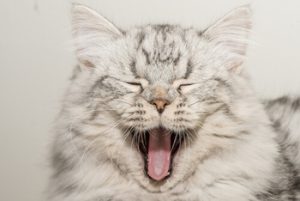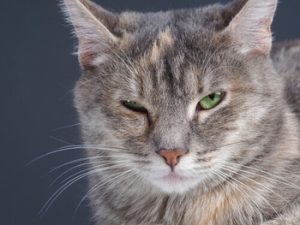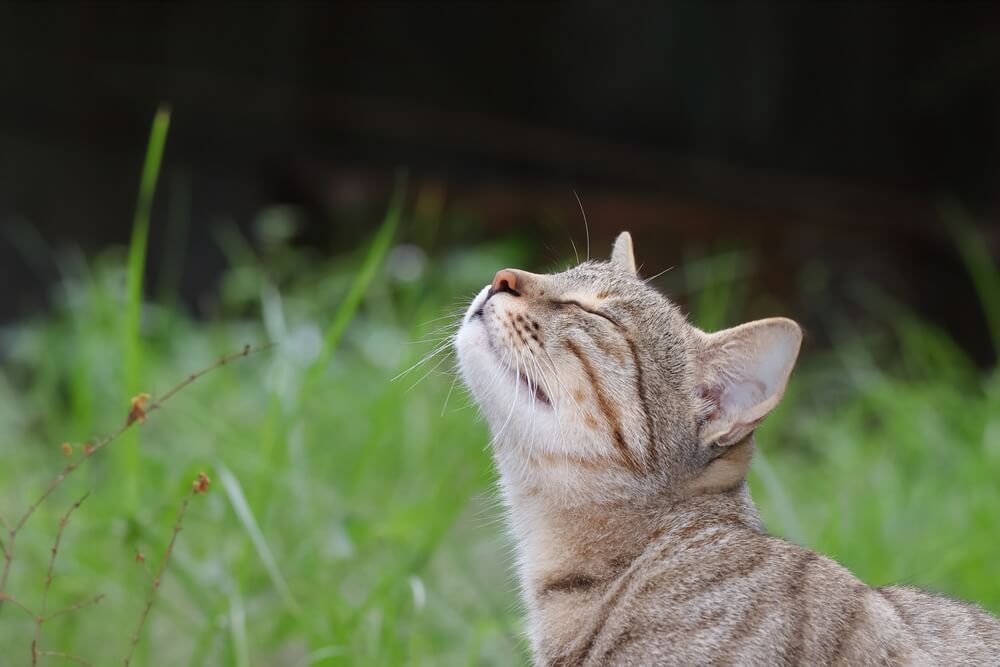Cats are often admired for their bright, expressive eyes. But when you notice your feline friend developing watery, crusty, or goopy eyes, it can be worrying. Eye discharge in cats is not always a big deal, but sometimes it signals a more serious condition that needs veterinary care. Understanding the potential causes can help you decide when to watch and when to call the vet.
What Is Normal for a Healthy Cat’s Eyes?
A healthy cat’s eyes are usually clear, bright, and free of discharge. You should not see excessive tearing, redness, or swelling. Occasional mild watery eyes can happen if something briefly irritates the surface, like dust or a foreign body. However, if the problem persists or is accompanied by other symptoms, it is important to pay attention.
Common Causes of Goopy Eyes in Cats
 Conjunctivitis or Pink Eye
Conjunctivitis or Pink Eye
Conjunctivitis is inflammation of the thin tissue covering the eye’s outward surface. It can cause red eyes, swollen eyes, excessive blinking, and clear discharge that sometimes turns into pus-like eye discharge. Conjunctivitis may be due to bacterial infection, viral infection, allergies, or irritants like household cleaning products. This condition often requires veterinary attention to prevent complications.
Feline Upper Respiratory Infections
One of the most common answers to “why does my cat have goopy eyes” is feline upper respiratory infections. These can be caused by viruses like the feline herpesvirus or feline calicivirus. Symptoms often include watery eyes, nasal discharge, sneezing, and eye irritation. Since these infections are highly contagious, they can spread quickly among cats. Left untreated, they may lead to chronic problems with tear ducts and ongoing ocular discharge.
Blocked Tear Ducts
Tear ducts normally drain fluid from the eye into the nasal cavity. When they become blocked, tears cannot flow out properly, leading to increased tear production and watery eyes. This can cause constant clear discharge or crusty buildup around your cat’s eyes.
Eye Infections and Bacterial Causes
Bacterial infection can lead to pus-like eye discharge that looks yellow or green. These infections often follow an injury, foreign material entering the eye, or as a complication of viral illnesses. Eye infections usually need specific treatments like antibiotic eye drops or eye ointment prescribed by a vet.
Corneal Disorders
The cornea, the dome-shaped surface at the front of the eye, can become inflamed or injured. Corneal disorders may result from scratches, foreign objects, or underlying eye problems. They often cause painful inflammation, excessive tearing, squinting, or a refusal to open the eye fully. Because the cornea protects the eye’s internal structures, any suspected damage needs prompt veterinary care.
Allergies and Environmental Irritants
Cats, like people, can develop irritated eyes from allergies or irritants. Household cleaning products, dust, or smoke can all trigger watery eyes, runny eyes, or excessive blinking. Allergies often lead to clear discharge rather than thick pus-like fluid.
Dry Eye and Immune Problems
In some cases, a chronic lack of tear production can lead to dry eye, a condition that causes irritated eyes and crusty buildup. This condition can stem from immune problems, inflammation, or nerve damage. Without enough lubrication, the eye becomes more vulnerable to infection and discomfort.
Other Symptoms That Can Appear with Eye Discharge
Goopy eyes rarely happen alone. Cats often show other symptoms that can provide important clues about the underlying issue:
- Nasal discharge and sneezing with upper respiratory infections
- Swollen glands near the jaw or neck with infections
- Painful inflammation or excessive tearing from corneal injuries
- Excessive blinking, squinting, or pawing at the face when the eye is irritated
- Crusty buildup around the eyes that may stick to fur
- Runny eyes that stain fur, especially in lighter-coated cats
If you notice multiple symptoms together, it is more likely that your cat needs veterinary care.
When Should You See a Vet?
You might wonder if goopy eyes are just a minor issue or a serious condition. Here are some times when you should not wait:
- Eye discharge in cats that turns yellow, green, or pus-like
- Red eyes, swollen eyes, or painful inflammation
- Persistent watery eyes or excessive tearing that does not improve
- Signs of a contagious respiratory disease like coughing or nasal discharge
- Any injury, foreign body, or sudden changes in your cat’s eyes
- If the eye looks cloudy, bulging, or if your cat resists opening it
Timely veterinary attention can prevent complications and keep your cat’s well-being intact.
How Vets Diagnose the Underlying Cause
A veterinarian will look closely at your cat’s eyes and ask questions about other symptoms. They may check tear production, examine the dome-shaped surface of the cornea, and test for infections. In some cases, they may flush tear ducts or recommend specific treatments like eye medications. Understanding the underlying cause is key to effective treatment.
Treatment Options for Goopy Eyes in Cats
Depending on the diagnosis, your vet may suggest:
- Artificial tears or eye drops to keep the eye’s surface moist
- Antibiotic eye ointment or eye drops for bacterial infection
- Antiviral medications for feline herpesvirus or other viral infections
- Cleaning the eye gently with a cotton ball dipped in warm water
- Removing foreign material or flushing blocked tear ducts
- Specific treatments for allergies, such as avoiding triggers or using anti-inflammatory eye medications
It is important not to use human medications unless prescribed by your vet, as they may harm your cat.
At-Home Care and Preventive Tips
While veterinary care is crucial for infections or serious conditions, you can support your cat’s eye health at home:
- Gently wipe away discharge with a damp cotton ball to prevent crusty buildup
- Keep your cat’s environment clean and free from strong irritants like smoke or harsh household cleaning products
- Ensure your cat receives vaccinations to protect against common contagious respiratory diseases
- Provide good nutrition to support immune function and overall well-being
- Watch closely for recurring symptoms that could signal an underlying issue
Final Thoughts
Goopy eyes in cats can stem from simple irritation or a more serious condition that requires veterinary care. While a simple cold or mild allergies may lead to watery eyes, persistent or pus-like discharge in cats is not something to ignore. Paying attention to your cat’s symptoms and seeking professional treatment when needed will help keep their eyes clear, comfortable, and healthy. A healthy cat’s eyes are more than just beautiful; they are also a sign of your feline friend’s overall health.
References:
https://www.webmd.com/pets/cats/eye-discharge-in-cats
https://hastingsvet.com/are-your-cats-eyes-goopy-what-it-means-and-when-to-go-to-the-vet/
https://www.petmd.com/cat/general-health/common-cat-eye-problems
https://www.rover.com/blog/cat-eye-discharge/
https://www.petcarerx.com/article/cat-eye-discharge-how-to-treat-different-types-of-feline-eye-issues/2934?srsltid=AfmBOoqKiS1Y44grwC6ZTaVXPwzKQw5UrlgvAvMHhZNb_YZYoRKgCsCI
https://berthoudanimalhospital.com/blog/cat-eye-discharge/


